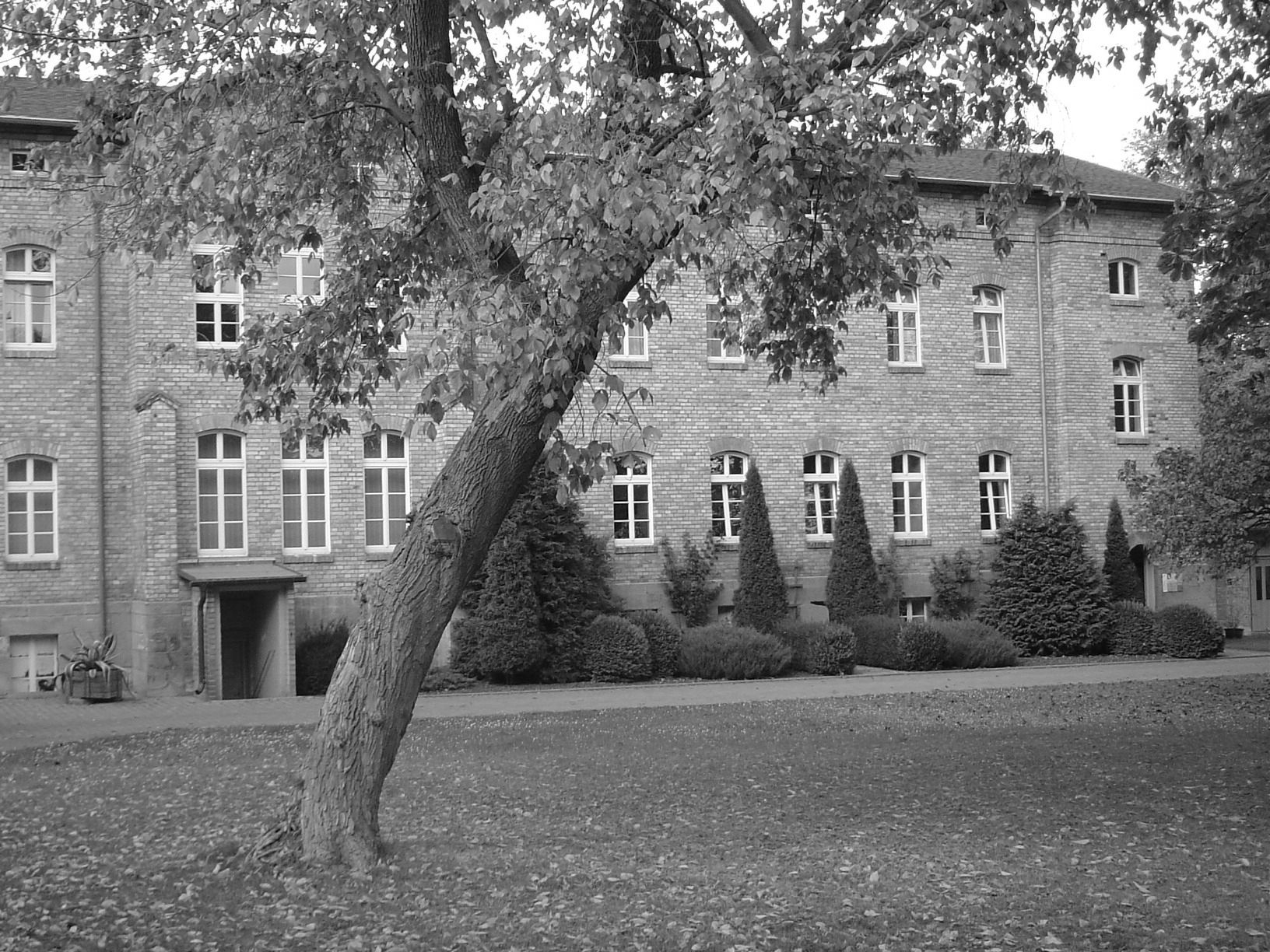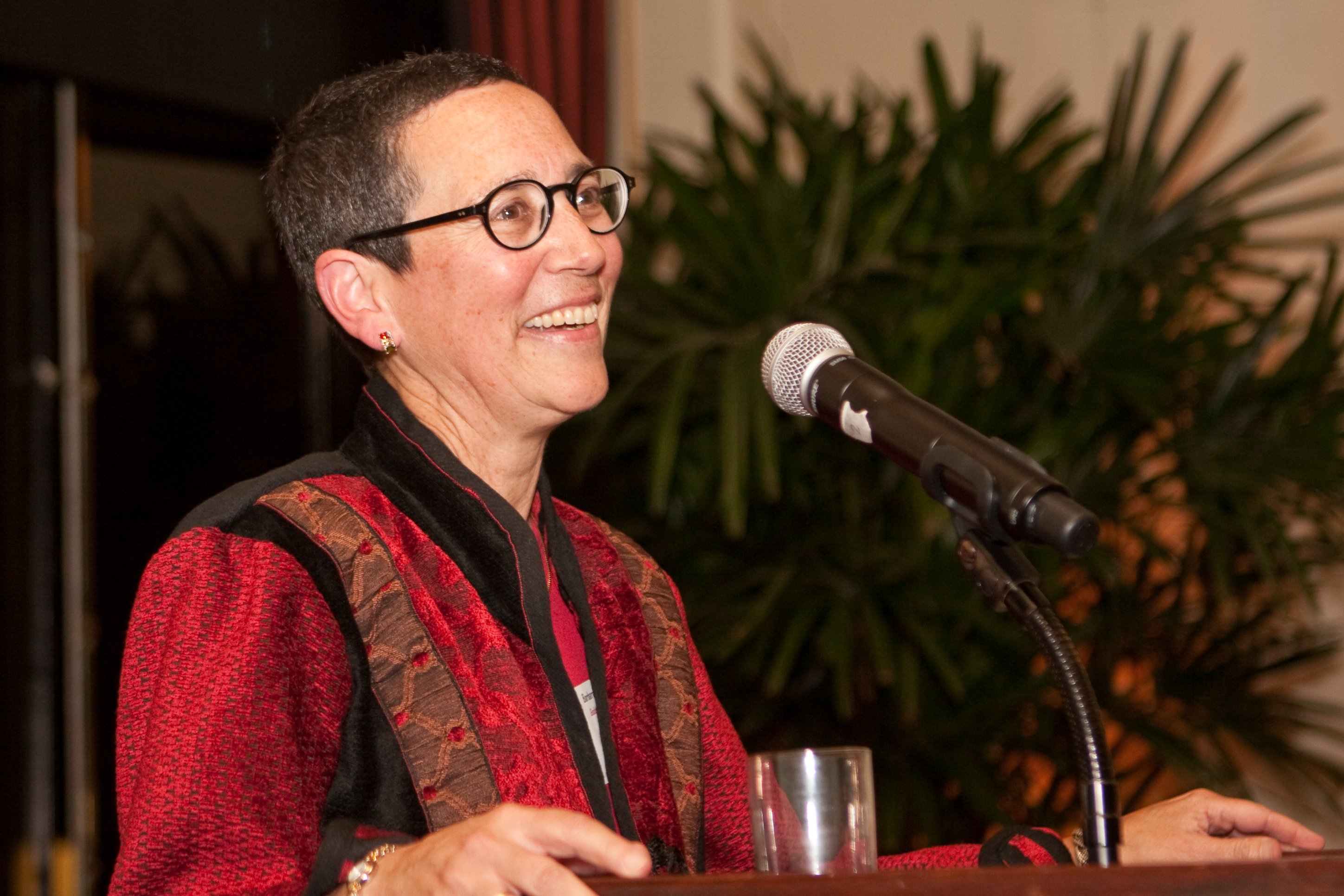|
Mary Pünjer
Mary Pünjer (24 August 1904 – 28 May 1942) was a German lesbian Jew, who was murdered in the Bernburg Euthanasia Centre during the The Holocaust, Holocaust. Life Mary Kümmermann was born on 24 August 1904 in Wandsbek (quarter), Wandsbek to a Jewish family. After graduating from the Wandsbeker Lyzeum high school in 1922, Mary initially worked as a saleswoman in her parents' women's clothing store. In 1929 she married a schoolfriend, Fritz Pünjer, who was not Jewish. On 24 July 1940, she was arrested and was interned in the Fuhlsbüttel concentration camp in Hamburg for three months. The camp's entry register described her as “anti-social” and, as an addendum - “a very active lesbian”. She also supposedly “exchanged tendernesses” with another woman. The fact that she was Jewish was not included in these records. In October 1940 Pünjer was transferred to the Ravensbrück concentration camp. On her admission to the concentration camp, “lesbian” was not note ... [...More Info...] [...Related Items...] OR: [Wikipedia] [Google] [Baidu] |
Bernburg Euthanasia Centre
The Nazi Euthanasia Centre at Bernburg () operated from 21 November 1940 to 30 July 1943 in a separate wing of the State Sanatorium and Mental Hospital (''Landes-Heil- und Pflegeanstalt'') in Bernburg (Saale), Bernburg on the River Saale in the German state of Saxony-Anhalt. It was one of several euthanasia centres run by the Nazis under their official "Euthanasia Programme", referred to after the war as Action T4. A total of 9,384 sick and handicapped people from 33 welfare institutions and nursing homes as well as around 5,000 prisoners from six concentration camps were killed there in a gas chamber using carbon monoxide gas. Today there is a memorial in Bernburg commemorating the victims of the Bernburg Euthanasia Centre. First phase of operation The victims at the killing centre in Bernburg were categorized by their place of origin. According to the organization chart they included: sick and disabled people from institutions in the provinces of Province of Brandenburg, Brand ... [...More Info...] [...Related Items...] OR: [Wikipedia] [Google] [Baidu] |
Lesbians In Nazi Germany
In Nazi Germany, gay women who were sent to concentration camps were often categorized as "asocial", if they had not been otherwise targeted based on their ethnicity or political stances. Female homosexuality was criminalized in Austria, but not other parts of Nazi Germany. Because of the relative lack of interest of the Nazi state in female homosexuality compared to male homosexuality, there are fewer sources to document the situations of lesbians in Nazi Germany. Background In Berlin, homosexual bars and night clubs opened up in the aftermath of the First World War. Notable amongst them was the ''Mali und Igel,'' run by entrepreneur Elsa Conrad. Inside the bar was a club called ''Monbijou des Westens.'' The club was exclusive and catered for Berlin's female gay intellectual elite; one famous guest was the actress Marlene Dietrich. Each year the club hosted balls with up to 600 women in attendance. A campaign to close all homosexual bars, including female ones, began in March ... [...More Info...] [...Related Items...] OR: [Wikipedia] [Google] [Baidu] |
German Lesbians
German(s) may refer to: * Germany, the country of the Germans and German things **Germania (Roman era) * Germans, citizens of Germany, people of German ancestry, or native speakers of the German language ** For citizenship in Germany, see also German nationality law **Germanic peoples (Roman era) *German diaspora * German language * German cuisine, traditional foods of Germany People * German (given name) * German (surname) * Germán, a Spanish name Places * German (parish), Isle of Man * German, Albania, or Gërmej * German, Bulgaria * German, Iran * German, North Macedonia * German, New York, U.S. * Agios Germanos, Greece Other uses * German (mythology), a South Slavic mythological being * Germans (band), a Canadian rock band * "German" (song), a 2019 song by No Money Enterprise * ''The German'', a 2008 short film * "The Germans", an episode of ''Fawlty Towers'' * ''The German'', a nickname for Congolese rebel André Kisase Ngandu See also * Germanic (disambiguatio ... [...More Info...] [...Related Items...] OR: [Wikipedia] [Google] [Baidu] |
Lesbian Jews
This is a list of LGBT Jews. Each person is both Jewish (by birth or conversion according to Jewish law, or identifies as Jewish via ancestry) and has stated publicly that they are bisexual, gay, lesbian, transgender, and/or queer or questioning (LGBTQ), or identify as a member of the LGBTQ community. Being both Jewish and LGBTQ is a canonical (recognized) example of some facet of each person on this list, such that the below listed person's fame or significance flows from being both Jewish and LGBTQ. Academia and education * Judith Butler, philosopher * Yuval Noah Harari, professor and author * Martin Duberman, historian * Uzi Even, Israeli chemist and former Knesset member * Lillian Faderman, American lesbian historian * Jack Halberstam, Professor of English and Director for the Center for Feminist Research at the University of Southern California * Magnus Hirschfeld, sexologist and activist * Ron Huberman, Israeli-born CEO of Chicago Public Schools * Fritz Klein, psychia ... [...More Info...] [...Related Items...] OR: [Wikipedia] [Google] [Baidu] |
Persecution Of LGBTQ People In Germany
Persecution is the systematic mistreatment of an individual or group by another individual or group. The most common forms are religious persecution, racism, and political persecution, though there is naturally some overlap between these terms. The inflicting of suffering, harassment, imprisonment, internment, fear or pain are all factors that may establish persecution, but not all suffering will necessarily establish persecution. The threshold of severity has been a topic of much debate. International law As part of the Nuremberg Principles, crimes against humanity are part of international law. Principle VI of the Nuremberg Principles states that Telford Taylor, who was Counsel for the Prosecution at the Nuremberg Trials wrote " tthe Nuremberg war crimes trials, the tribunals rebuffed several efforts by the prosecution to bring such 'domestic' atrocities within the scope of international law as 'crimes against humanity". Several subsequent international treaties incorpora ... [...More Info...] [...Related Items...] OR: [Wikipedia] [Google] [Baidu] |


